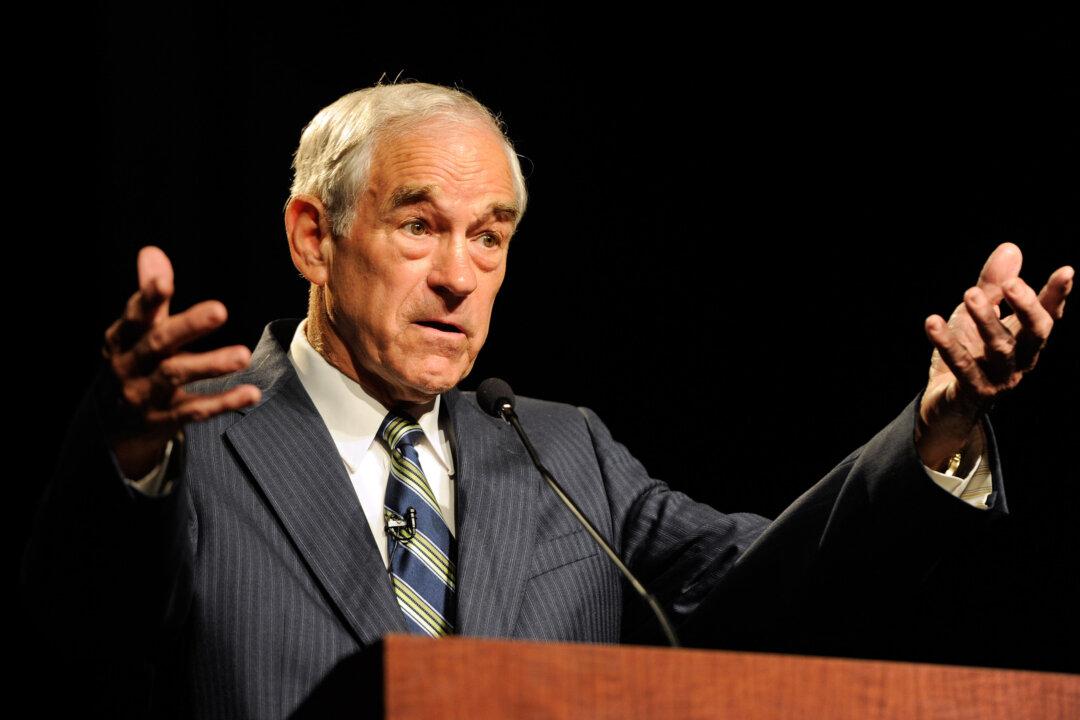Former Congressman and libertarian darling Ron Paul has spoken out in his weekly column to address the current activities of the Federal Reserve, arguing that the United States will face an era of stagflation as a result of the Fed’s monetary policies throughout the CCP (Chinese Communist Party) virus pandemic.
Paul’s written statement is a response to the latest rate hike of 0.75 percent from the Fed, the highest single hike since 1994, as the institution becomes more frantic in its fight against inflation. In his column, the octogenarian gadfly said that the Fed’s ambitions to stymie inflation without triggering a recession were unlikely, sniping at the Central Bank’s previous assertions that the current bout of inflation was “transitory.”





